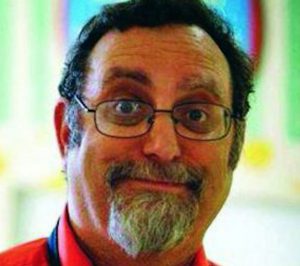Leavitt: The end of innocence
By Irv Leavitt for Chronicle Media — May 27, 2020As I drove up to the address, I saw the man lying on the driveway, his arm covering his face. It was clear he wouldn’t be getting up and going anywhere ever again.
The police were there. In a few minutes, they took out another body, that of a woman, the man’s ex-wife. She had shot and killed him, called his corpse names, then gone back into the house and finished her life’s work.
The two had frequently argued over child custody. The child wouldn’t hear their arguments anymore.
I took a deep breath to calm myself before I walked down the street to talk to the neighbors about these two people who used to be alive. That was my job. I covered the town, and whatever significant thing that happened, good or ill, I had to write about it.
I eventually realized that if you do that job long enough, you will have to write about almost all of the terrible things that can happen to people.
Maybe you don’t like reading it, but it’s worse on the other end.
That’s especially because, as reporters, we can’t do anything about it. Sometimes, we can improve the odds that in the future, tragedy won’t be repeated. But what’s done is done.
The worst is the death of children. They are tortured by disease, hung by errant window blinds, killed by dogs, accidentally poisoned, drowned, and run over by cars, including those driven by their parents. Sometimes, parents have willfully killed their offspring.
But mostly, you have to talk to parents who have difficulty reconciling the loss of children. I can’t forget the mother who made a realistic life-size doll in the image of her lost son, and sat it down in a chair in the front room. Her marriage did not survive.
I covered bankruptcies and business failures. People lost their possessions and their homes to fire and financial ruin. I wrote about child molestations, rapes of men, women and children, jailhouse beatings and deaths, sexual harassment, cancer and other fatal maladies. Mentally ill people called me on the telephone and met me for coffee.
Gambling, alcohol and drugs destroyed individuals, and sometimes whole families.
Other families were rent when members went to prison. Sometimes, with prison in the offing, whole families went on the run.
People were left penniless by relatives who stole from them. Lawsuits over slip-and-falls sometimes destroyed family futures. Some divorces led to poverty, depression or homelessness.
People were killed in trains and buses, cars and airplanes. They died on construction sites and under faulty parachutes. War. Military training.
Once, while trying to revive a woman who had tumbled out of the driver’s seat of her car after a heart attack, I saw the fear in her eyes. Then I saw, in those same eyes, the lights go out.
I never wanted to see that again. But I did.
I wrote about people who became suddenly blind or deaf, or lost their senses of smell and taste. I told readers about people who became afraid to go outside. Others were afraid to come in.
There were people who became confused and wandered away, and others who just went outside and lay down in the snow.
Suicides are rarely covered unless they are prominent people or they die in public. But there are plenty of those. A teenager hanging from a tree. A basement gunshot. People stepping in front of fast-moving trains, their limbs hurled onto platforms, their blood mottling the engineer’s windscreen.
That’s as graphic as I’m going to get today. But trust me, there’s worse.
If you wondered why journalists are known to drink, this might give you an idea.
Here’s another scoop: One tragedy none of them has experienced before is the current pandemic.
They have that in common with you.
Scoop number next: This pandemic will have far-reaching consequences. It’s already happening.
You know that there are going to be many foreclosures, lost businesses and bankruptcies. Now it won’t be just me and others like me who know people who suffer this way. You will, too.
And, of course, some people won’t be able to handle it when this happens to them. They will make things much worse for their families and friends.
You will probably know some of these people, too.
You will also know people who got sick during the time hospitals and doctors’ offices were busy with the virus. It will be too late for some of them by the time they finally get care.
You may know people who have lost the loves of their lives before their time.
You will have friends who divorce, and there will be other couples who do worse to each other.
You will likely know kids who flunk out of school. Some of your friends will be suddenly unemployable. You may know people who are evicted. You will know people who take their last money to the casinos and lose everything they have left.
People like me may find out about what happens to your friends, but we will find out too late. As usual.
But you may have multiple opportunities to be a person who makes the difference between hardship and tragedy for people you know, if you learn of the trouble early enough.
I hope you’re up to it.
If not, you can probably find a seat at the bar next to one of my colleagues.








